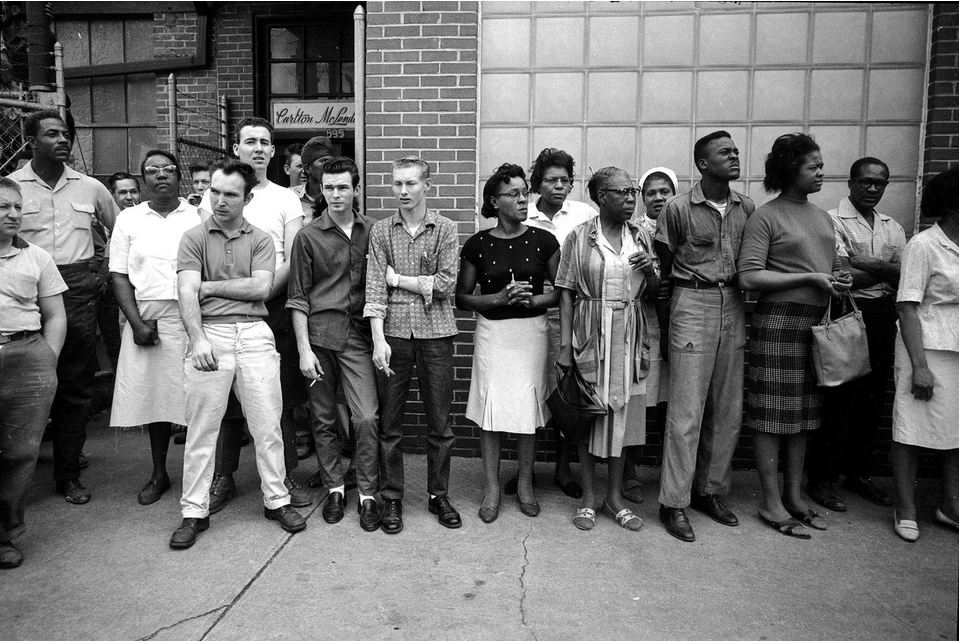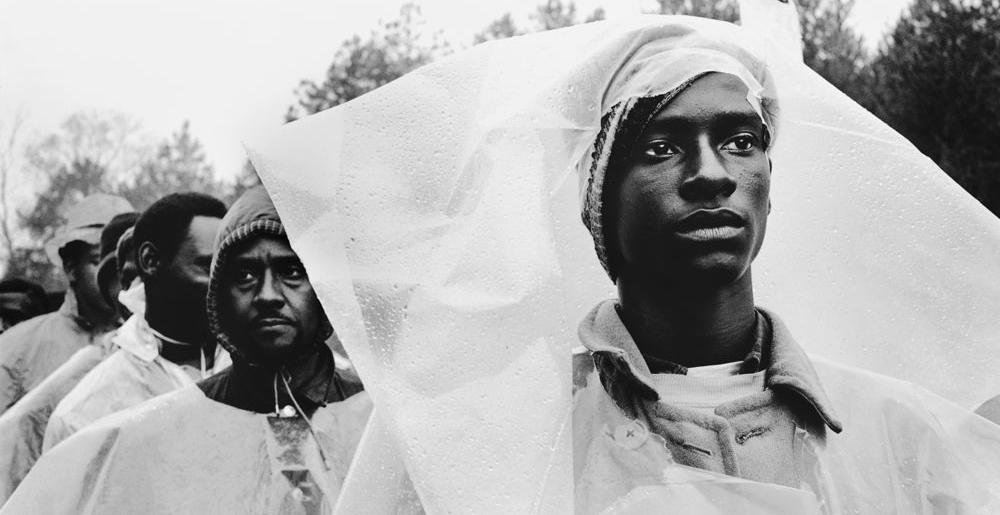Monroe Gallery of Photography
Booth #203 Photo LA
January 15 - 18, 2015
Monroe Gallery of Photography will be exhibiting a specially selected collection of civil rights photographs from the 1956 Selma March to Ferguson, Missouri and present day in booth #119
during the AIPAD Photography Show April 16 - 19, 2015.

Onlookers watch the Selma-to-Montgomery march pass thru
Montgomery, 1965
On the Road, the Selma March, 1965
"Vote", Selma March,1965
Boy with Flag, Selma March, 1965
Flag, Selma March, 1965
Martin Luther King Marching for Voting Rights with John Lewis, Reverend Jesse Douglas,
James Forman and Ralph Abernathy, Selma, 1965
Martin Luther King, Selma, Alabama, 1965
Martin Luther King, Selma, Alabama, 1965
Martin Luther King, Jr., (Megaphone), Selma, Alabama, 1965
Rosa Parks, Selma March, 1965
Martin Luther King, Andrew Young, John Lewis, Selma, 1965
Entering Montgomery, Selma March, 1965
Entering Montgomery, Selma March, 1965

Girls Watching the Selma March, Alabama, 1965

Selma Marchers Wrapped in Plastic to Protect Against the
Rain, 1965
Related: The New Yorker: The Long Road From Selma to Montgomery
